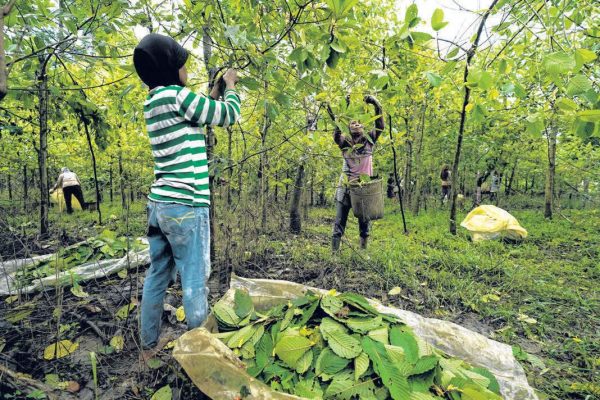In an effort to boost Indonesia’s agricultural and export sectors, Presidential Chief of Staff Moeldoko has called for an acceleration of the establishment of kratom trade regulations. The recent meeting held in the Indonesian capital of Jakarta included representatives from various ministries and agencies, highlighting the collaborative effort to manage kratom trading effectively. Representatives from the Ministries of Economy, Finance, Trade, Cooperatives and MSMEs, Environment and Forestry, and the Agricultural Quarantine Agency were all in attendance.
Moeldoko emphasized the need for a proper legal framework and trade management system to protect farmers and businesses involved in kratom exportation. Kratom, primarily grown in West Kalimantan, a province on the island of Borneo, offers substantial economic benefits to Indonesia, with millions of trees growing in the region. Moeldoko stressed the importance of standardizing kratom exports to meet international health and safety standards, and to avoid rejections due to contamination.
Indonesian farmers have reportedly lost millions of dollars due to American buyers rejecting contaminated shipments. More and more kratom farmers and farmers’ co-ops have started to voluntarily implement standards across their farms and factories. However, standards have not been set by the Indonesian government.

Since August 2022, the Presidential Staff Office has been overseeing the governance and trading procedures for kratom, following President Joko Widodo’s orders. Indonesia’s National Narcotics Board has previously expressed the desire to outlaw kratom. However, most government agencies do not agree with this approach with most of the world’s kratom supply currently being grown in Indonesia. Legislation has also been an active topic in the United States, by far the largest consumer of kratom with an estimated 95% market share.
Despite some opposition, the global kratom market is experiencing significant growth. In 2023, the market was valued at USD 1.87 billion and is expected to grow at a compound annual growth rate (CAGR) of 17.2% from 2024 to 2030, reaching USD 5.69 billion. This growth is driven by increasing consumer demand for natural and herbal products, as well as kratom’s potential as an alternative to opioids for pain management. The market has seen fluctuations in demand and supply mainly because of changing regulations and public perception.
In 2021, Thailand legalized kratom and has made significant maneuvers in science and policymaking that suggest the development of a kratom export industry. The decriminalization of kratom involved removing the drug from the official list of controlled narcotics, which has allowed for its legal possession, sale, and cultivation. This move is part of Thailand’s broader efforts to liberalize its drug laws, which also include regulated medical marijuana use and the licensed growing of marijuana. The legalization of kratom is expected to provide economic benefits, particularly for farmers in Thailand’s southern provinces where the plant is traditionally grown.



